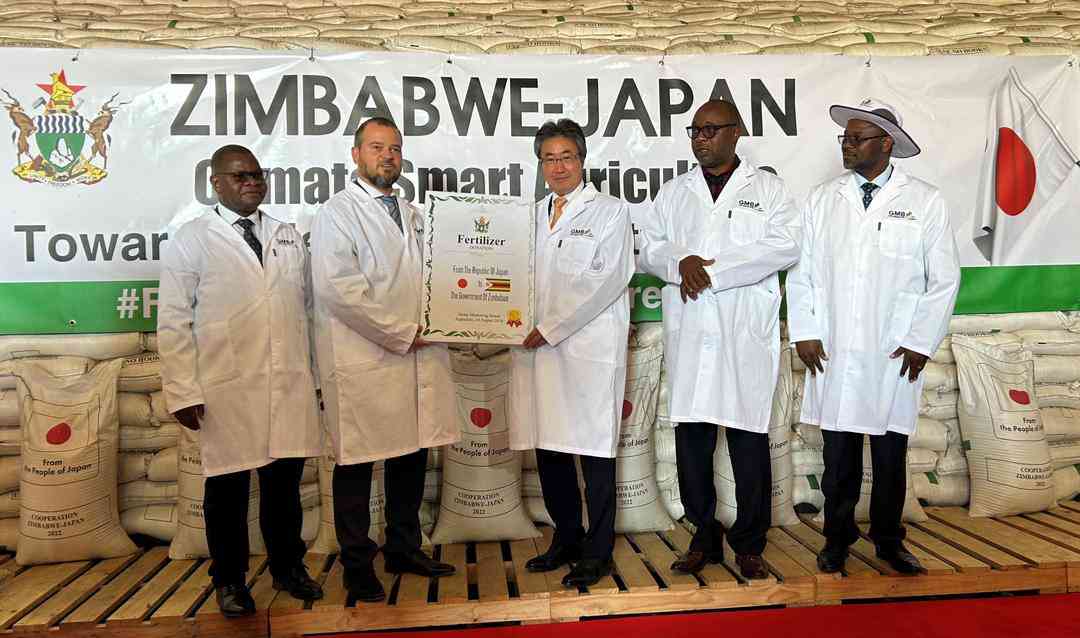
JAPAN has handed over more than 5 500 tonnes of fertiliser that is expected to boost agricultural production for small-scale farmers across Zimbabwe.
The 3 600 tonnes of ammonium nitrate and 1 940 metric tonnes of Compound D fertiliser were handed over to government at the Grain Marketing Board (GMB) Aspindale Depot in Harare.
The donation is expected to benefit approximately 100 000 small-scale farmers throughout Zimbabwe, offering the much-needed support ahead of the upcoming agricultural season.
Speaking at the handover ceremony, ambassador Shinichi Yamanaka underscored the importance of partnership in fostering food security and economic stability in Zimbabwe.
“This donation of fertiliser is a testament to the strong and enduring relationship between Japan and Zimbabwe,” he said.
“We understand the critical role that small-scale farmers play in the nation’s agricultural productivity and we hope that this support will significantly enhance their capacity to contribute to Zimbabwe’s food security.”
Lands, Agriculture, Fisheries, Water and Rural Development ministry secretary Obert Jiri expressed gratitude on behalf of government for the donation.
He said the support was in line with Zimbabwe’s broader efforts to revitalise the agricultural sector.
- 28K landmines cleared since March
- Motoring: The legendary Toyota Land Cruiser 100 series
- Buyout fund JIP submits $15 bln Toshiba bid without bank backing, Nikkei says
- Croatia beat Japan on penalties to reach quarters
Keep Reading
“This generous donation from the government of Japan comes at a critical time as we prepare for the planting season,” Jiri said.
“It will go a long way in supporting small-scale farmers, who are the backbone of our agricultural economy. We are committed to ensuring that this fertiliser reaches those who need it most.”
He also said the fertiliser would be distributed through the GMB.
“GMB has been tasked with ensuring that the assistance reaches the intended beneficiaries efficiently and transparently,” Jiri said.
“The fertiliser is expected to play a crucial role in improving crop yields, particularly for staple crops such as maize, which is a key component of Zimbabwe’s food security.”
Meanwhile, the partnership between Zimbabwe and Japan has seen several other impactful projects aimed at enhancing various sectors within the country.
Japan has been a key partner in Zimbabwe’s health sector, notably through the construction and refurbishment of clinics and hospitals, as well as the provision of medical equipment and supplies.
The Japanese government has also supported Zimbabwe’s infrastructural development, including road rehabilitation and water supply projects, which are critical for the country’s socio-economic development.










